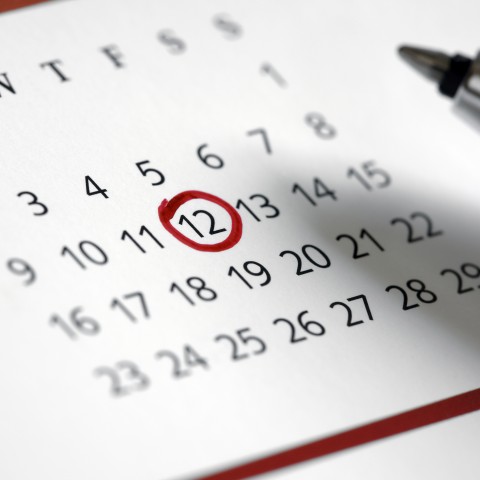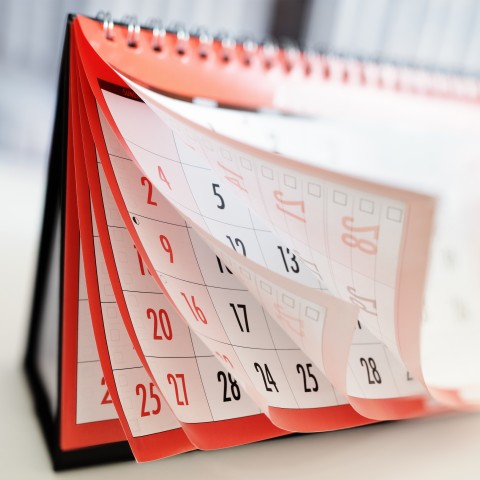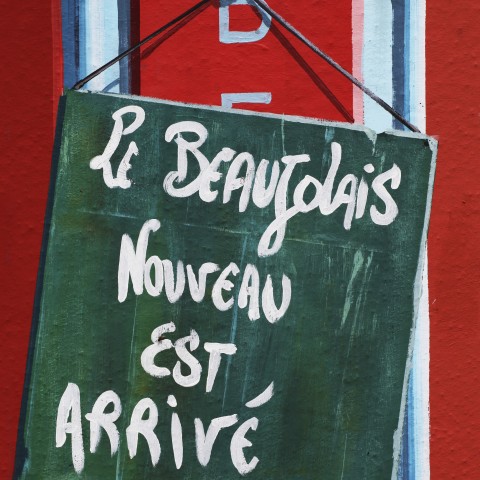Some dates grow on trees, others are arranged on Tinder, but today, we’re interested in the ones that live and thrive on the French calendar. If you’re planning to travel to or leave France, or if you have occasional interactions with French speakers, there’s a good chance you’ll eventually have to deal with calendar dates in French, including how to write days of the week in French.
This could happen if someone inquires about your anniversaire (birthday), if you have to fill out a formulaire (form), or make a rendez-vous (appointment). Dates go with your signature on most official documents, and knowing how to write them will also make the booking of your train tickets a much smoother experience.
Learning to write dates in French is simply an unavoidable aspect of learning the language, and it will make every aspect of your life much easier in the French-speaking world.
Today, we’re going to learn how to tell or write the date, from the mythological names and numbers of the days of the week, to the years and months in French. In the process, you’ll learn many common phrases about the dates, as well as the most popular questions and how to answer them.
By the end of the article, you’ll be perfectly date-proof and ready to answer any historical question from the French Jeopardy game! Without further ado, our guide on days, months, and dates in French, and every phrase you’ll need to know!
Table of Contents
- How to Tell the Date
- How to Say the Days of the Week
- How to Say the Months
- How to Say the Years
- Must-Know Phrases to Talk about Dates
- Celebrating Life and Wine in France!
- How FrenchPod101 Can Help You Learn More French
1. How to Tell the Date
Once you know the words for the days and months, telling the date in French is nothing complicated. Especially for those starting from American English, there’s just a few differences when it comes to dates in French language. Here are the most significant rules for writing dates in French to keep in mind:
1- Dates in French Format: Day, Month, Year
How are dates written in French?
Unlike the Month, Day, Year trinity of American dates, French starts with the day, then the month, and then the year. We write all three in a row, without commas or any other separator.
For example, here are some examples of how to write dates in French:
- 14 juillet 1789 [French Revolution’s Bastille Day]
- 27 décembre 1975 [Queen releases Bohemian Rhapsody]
For now, don’t worry about the translation of the months or how to pronounce the years. We’ll cover all that in a moment!
2- To Le or not to Le
How to say dates in French depends on the formality of the occasion. In formal situations, giving dates in French can be done one of the following two ways:
- Nous sommes + day of the week + le + day’s number (#) + month + year.
- Nous sommes + le + # + month + year.
For instance, saying dates in French may look like this:
- Nous sommes Lundi le 25 mai 1977.
“It’s Monday, May 25, 1977.” - Nous sommes le 25 mai 1977.
“It’s May 25, 1977.”
[Star Wars – A New Hope hits the theaters.]
In informal situations, expressing dates in French will look like this:
- C’est + day of the week + le + # + month + year.
- On est + day of the week + le + # + month + year.
For instance:
- C’est mardi le 21 décembre 2012.
“We are Tuesday, December 21, 2012.” - On est mardi le 21 décembre 2012.
“We are Tuesday, December 21, 2012.”
[Mayan-based prophecy for the end of the world.]
Datte (date fruit) not date (calendar date).
3- How to Abstract from the Date
There are many ways to go about talking about dates in French. Some involve the whole set of information, as we’ve seen above, including the name of the day, number, month, and year. Others involve only one or two components, and knowing those structures will literally save the day.
Here’s how to talk about the day:
- On est lundi.
“It is Monday.” - Je vais à la piscine le mardi.
“I’m going to the pool on Tuesdays.” - Il va au marché tous les samedi.
“He’s going to the market every Saturday.” - Nous sommes le 12.
“It is the 12th.”
Now, about the month:
- On est en janvier.
“It is January.” - Le mois de juillet.
“The month of July.”
And finally, the year:
- On est en 2019.
“It is 2019.” - En l’an 2012
“In the year 2012.”
Or why not some combinations, using dates and years in French?
- Nous sommes en mars 2015.
“It is March 2015.” - J’ai un rendez-vous le 23 octobre.
“I have an appointment on the 23rd of October.”
4- How to Write the Date
To write dates in French on formal documents or letters, we use the following structure:
- Day of the week + le + # + month + year.
Example:
- Lundi le 15 mai 2030.
“Monday, May 15, 2030.”
You can also write the date in a condensed format. It’s very similar to English, but with a twist: Once again, the order is day / month / year.
It looks like this : DD/MM/YY
For instance:
- 05/07/96 (July 5, 1996) [Dolly the sheep is cloned.]
- 23/04/05 (April 23, 2005) [YouTube is officially launched.]
Un calendrier (a calendar)
2. How to Say the Days of the Week
When reading dates in French, you’ll have to know the names of the days of the week. Just like the months, French days don’t start with a capital letter.
| lundi | Monday |
| mardi | Tuesday |
| mercredi | Wednesday |
| jeudi | Thursday |
| vendredi | Friday |
| samedi | Saturday |
| dimanche | Sunday |
All these names come from Latin, and many from Roman mythology, and it’s not only good to know about it to impress your friends at a dinner party; it will also help you remember them!
- Lundi (Monday) is the day of the Moon.
Luna is the Latin word for “moon,” becoming lune in French, becoming lundi.
In English, “Monday” is the Moon Day, but it’s a bit more complicated than that. It derives from Old English “Mōnandæg” and Middle English “Monenday,” based on Latin dies lunae which translates to “day of the Moon.”
- Mardi (Tuesday) is the day of the God of War.
While the Greek God of War, Ares, was being torn apart by a vengeful Kratos, his Roman counterpart, Martius (or Mars in French) was becoming mardi.
In English, they use the Norse God of War, Tyr (or Tiw), later becoming Tiwesdaeg, and finally: “Tuesday.”
- Mercredi (Wednesday) is the day of the Messenger God.
From the Roman messenger God, Mercury (Mercure in French), it becomes mercredi.
In English, it comes from the Norse God, Odin the chief God of Asgard (also called Woden or Wotan), later becoming Wodnesdaeg, and then “Wednesday.”
- Jeudi (Thursday) is the day of the God of Thunder.
From the Roman God-in-chief Jupiter (equivalent of the Greek Zeus), it became Jeudi.
In English, the Norse God of Thunder was Thor (long before he joined the Avengers). It became Thorsdaeg and “Thursday.”
- Vendredi (Friday) is the day of Beauty.
From the Roman Goddess of Beauty, Venus, it became vendredi.
In English, the Norse Goddess of Marriage and the Hearth, Frigga (wife of Odin), later became Frigedaeg and then “Friday.”
- Samedi (Saturday) is the day of Time.
Both French and English words come from the Roman God of Time and Harvest, Saturn. While the English “Saturday” didn’t stray too far from its godly origins, the French version went a bit wild and evolved into samedi.
- Dimanche (Sunday) is the day of the Lord.
Not as sunny as the English word, but wrapped in a shroud of mystical mystery, the French dimanche comes from the Latin Dies Dominicus, which means the “Day of the Lord.”
La mythologie (Mythology)
→ To learn how to pronounce the names of the days, make sure to check out our free vocabulary list on Talking about the Days on FrenchPod101.
→ For the numbers of the days, stop by our vocabulary list on numbers with audio recordings.
3. How to Say the Months
Unlike in English, French months don’t start with a capital letter. You’ll also certainly be happy to know that they’re way easier to handle than our exceptions-riddled years. Let’s jump right in:
| janvier | January |
| février | February |
| mars | March |
| avril | April |
| mai | May |
| juin | June |
| juillet | July |
| août | August |
| septembre | September |
| octobre | October |
| novembre | November |
| décembre | December |
Here are a few sentences using the names of the months:
- On est en juillet.
“It’s July.” - L’année prochaine, il va neiger en janvier.
“Next year, it will snow in January.” - L’été commence fin juin et se termine fin septembre.
“Summer starts at the end of June and ends at the end of September.” - On habite ensemble depuis mai 2012.
“We’ve been living together since May 2012.”
→ Go the extra mile with FrenchPod101 and learn how to pronounce the French months with our vocabulary list on Talking about Months.
4. How to Say the Years
If you want to talk about the years and historical dates of all kinds, you’ll have to learn the numbers. There’s no way around it. Luckily, we have a comprehensive article about French Numbers that will teach you how to count from one to infinity!
Sure, you could just learn some key dates, such as the current one or the year of your birthday, but they’ll be much easier to remember once you know how the numbers work.
1- How to Pronounce the Years
Years are usually pronounced like any other big number, as follows:
| 2019 | Deux-mille-dix-neuf |
But then, there’s a special case for all the years from 1100 to 1999.
These dates can be pronounced in two ways, depending on whether you’re counting the thousands or the hundreds.
Here’s an example with the year 1910:
- The “thousands” way: Mille-neuf-cent-dix.
This literally means “one-thousand” (mille) “nine-hundred” (neuf-cent) “ten” (dix). - The “hundreds” way: Dix-neuf-cent-dix.
This one literally means “nineteen hundred ten.” Instead of counting one-thousand and then nine-hundred, you’re counting “nineteen-hundred.”
Both forms are correct and equally accepted, but you should use the “hundreds” way only in oral communication. You always write years the “thousands” way. If you want to be safe, I recommend to always use the “thousands way,” but it’s good to know that some weird people count differently.
More examples of these two ways:
| Date | Thousands way | Hundreds way |
| 1408 | Mille-quatre-cent-huit | Quatorze-cent-huit |
| 1760 | Mille-sept-cent-soixante | Dix-sept-cent-soixante |
| 1911 | Mille-neuf-cent-onze | Dix-neuf-cent-onze |
N’oublie pas la date de ton rencard. (Don’t forget the date of your date.)
2- Année or An?
There are two ways to say “year” in French: Un an and Une année.
There’s no strict rule about whether you should use one or the other, but in most cases:
- An is used with a specific number of years.
Examples:
- J’ai vingt-deux ans.
“I am 22 years old.” - Il y a trois ans.
“Three years ago.” - Dans dix ans.
“In ten years.”
- J’ai vingt-deux ans.
- Année is used without numbers in many different expressions.
Examples:
- L’année prochaine
“Next year” - Toute l’année
“All year” - Cela fait des années.
“It has been years.” - Les années 60
“The sixties”
- L’année prochaine
5. Must-Know Phrases to Talk about Dates
We’ve seen how to assemble a French date from the day, the month, and the year. Now, it’s time to get more practical with some of the most important phrases and expressions about dates, as well as the common questions and answers.
1- Le Premier
In English, all days are said using ordinal numbers, from 1st to 31st. This isn’t always the case, but for both Americans and the British, it’s the most common way to tell the date.
In French, all days use regular numbers, except for the first day of the month.
- Le premier mai
“The first of May” - Le deux mai
“The second of May” - Le trente-et-un mai
“The thirty-first of May”
2- What Day is it Today?
If you’re a time traveler or you just got out of a Game of Thrones marathon and lost track of the days, this is likely to be your first question.
Just keep in mind that asking for the date in a foreign language is as tricky as asking for directions. You’ll find it easy to ask, but not to understand the answer. So, carefully learn your months, get fluent with French numbers, and you’ll do just fine!
[Formal]
- Quelle est la date aujourd’hui ?
“What is the date today?” - Quel jour sommes-nous (aujourd’hui) ?
“What day is it today?”
[Casual]
- C’est quoi la date aujourd’hui ?
“What is the date today?” - On est quel jour (aujourd’hui) ?
“What day is it today?”
Note that in form 1, the word aujourd’hui (today) is important. In most situations, the other person will get from the context that you’re asking about today, but there are some cases where you could be asking for Nicolas Cage’s birthday or about the next Hanson live concert.
In form 2, the word aujourd’hui is implied and could be omitted without creating any confusion. This is because the literal translation of this form really is: “What day are we?”
Common answers are:
[Formal]
- Nous sommes le 15 septembre.
“Today is the 15th of September.”
[Casual]
- On est le 15 septembre.
“Today is the 15th of September.”
You can also ask for more specific information, such as the day’s number or the year. Here’s how to do so:
[Formal]
- Le combien sommes-nous aujourd’hui ?
“What day is it today?” - En quelle année sommes-nous ?
“What year is it now?”
[Casual]
- On est le combien aujourd’hui ?
“What is the date today?” - On est en quelle année ?
“What year is it now?”
Be careful with question two. Don’t use it until you’re ready to tell your friends about your years of hardcore gaming in a bunker or your decade of solitary confinement in a Siberian prison.
3- Le Prochain
To talk about the next whatever, you can use the word prochain (next). It could be the next week, month, weekend, year, decade, or century. Here’s how:
- La semaine prochaine
“Next week” - Le mois prochain
“Next month” - L’année prochaine / L’an prochain
“Next year”
To talk about the next days, you’ll more likely use demain (tomorrow) or après-demain (the day after tomorrow, or literally: “after-tomorrow” when translated).
6. Celebrating Life and Wine in France!
How could I write about the dates without mentioning all of our yearly events and celebrations?
We have a fairly long list of holidays in France. Some are of religious origin, but lost most of their spiritual varnish and are now celebrated by everyone. Many of them have become an excuse for indulging in delicious food (nothing wrong with that!) or blind consumerism (I’m looking at you, Christmas). But celebrations such as la chandeleur (Candlemas) and its delicious Crêpes, or l’épiphanie (Epiphany), should absolutely not be missed.
If you want to learn more about the main events of the French calendar, be sure to check out our excellent article about the Must-Know French Holidays and Events in 2019.
And for some lesser-known celebrations that will leave you happy and tipsy, stick with me for a while as we take off for the wine-growing regions of France!
1- Les Vendanges
The vendange (grape harvest) is the process of harvesting grapes for the production of wine (the word doesn’t apply to the table grape). The same word is used for the grape that’s harvested during this process.
L’époque des vendanges (or “The grape harvest season” in English) depends on the region, the weather conditions, and everything affecting the maturity of the grape. However, the vendanges traditionally takes place between the months of September and October (one month earlier than fifty years ago, courtesy of global warming).
- Entre septembre et octobre
“Between September and October”
The grape can be harvested by hand or with machines. The former is the traditional method that is still used for high-quality vintage or sparkling wine, as both require a rigorous selection of grapes. It’s also used when the terrain doesn’t allow a mechanical harvest.
The latter is much faster and cheaper, but skips the selection process, mixing grapes of various levels of maturity and resulting in the final product being of lower quality.
Le vignoble (The vineyard)
Every year, during les vendanges, wine-growers from all the wine regions of France hire thousands of short-term workers to help them with the manual harvest in a warm and cheerful atmosphere. It involves working eight hours a day, garden shears in hand, which is equally rewarding and exhausting, but definitely a cool way to jump on the winemaking train!
Contracts range from eight to fifteen days, and usually, no previous experience is required. However, it takes a good level of fitness, because the job is as physical as it gets.
Check out the official website of our national job agency: Pole-emploi. Or if you’re targeting a specific area, head to the regional page of your choosing, such as Auvergne, Rhones-Alpes or Grand-est.
2- Le Beaujolais Nouveau
Every year, on the third Thursday of November, the Beaujolais nouveau (new Beaujolais) makes a big entrance. For the next few days, the French will be drinking this ruby red fruity wine with a solemn enthusiasm.
- Le troisième jeudi de novembre
“The third Thursday of November”
The Beaujolais nouveau, or Beaujolais primeur, is produced in the vignoble du Beaujolais (Beaujolais vineyard) and can be sold right after the end of the vinification process. Thus, each year, restaurants and bars traditionally advertise the arrival of the new vintage of the beloved Beaujolais.
The new Beaujolais has arrived!
The official “launch” of the wine takes place in the town of Beaujeu, historical capital of Beaujolais, during the traditional celebrations of the Sarmentelles. There, after a procession of wheelbarrows filled with vine branches is ceremoniously set on fire, the first barrels of Beaujolais are pierced at midnight, and the rest is history.
3- Wine Festivals
The Beaujolais is just one among many wine festivals throughout France. Another famous event is the Grand Tasting or Festival des grands vins (Superior Wines Festival) which takes place each year in the Louvre, where the most prestigious winemakers put on a show.
Check out The Wine Agenda from the LRVF website for more information on the numerous events and celebrations for wine-lovers in France!
Festival du vin (Wine festival)
7. How FrenchPod101 Can Help You Learn More French
In this guide, you’ve learned everything about dates, from the days, to the years and months. You’ve also learned some practical sentences for asking about the date and giving it. Do you feel ready to talk about dates and deal with big-number years? Practice dates in French by dropping us a comment with today’s date.
A good way to practice using the dates is to go step-by-step. Start with the days:
- On est le 18.
“Today is the 18th.” - On est mercredi 18.
“Today is Wednesday, the 18th.”
Most of the time, this is the expected answer when someone asks you about the date.
Then, when you’re feeling comfortable with the days, try adding the month, and finally, the year:
- On est le 18 décembre.
“Today is the 18th of December.” - On est le 18 décembre 2019.
“Today is the 18th of December, 2019.”
It’s all about taking it easy and going at your own pace until you become fluent with dates.
FrenchPod101 also has tons of free vocabulary lists with audio recordings, and more free resources to boost your studies and keep your French-learning fresh and entertaining!
Remember that you can also use our premium service, MyTeacher, to get personal one-on-one coaching. You can have your private teacher help you practice with dates, and much more! This service includes assignments, personalized exercises, and recorded audio samples for you (as well as a tutor to review your own recordings to help improve your pronunciation).
Happy learning on FrenchPod101!
About the Author: Born and bred in the rainy north of France, Cyril Danon has been bouncing off various jobs before he left everything behind to wander around the wonders of the World. Now, after quenching his wanderlust for the last few years, he’s eager to share his passion for languages.






















